Knowing Your Students
Students in Context
Sometimes all of our best efforts as teachers do not result in the outcome we hope for. There is that bright student, the one who asks those really good questions, who keeps shooting him/herself in the foot. Or the one who you know has a lot to offer, but who keeps quiet in class. And so on…Growing up is more fraught with challenges these days than ever, many of which we are not equipped to handle.
This section offers information, in articles, books, and films, on topics that may provide ideas on what may be going on in the lives of some of those hard-to-fathom children. These suggestions are not necessarily silver bullets and not all of the information will be a direct match for the situation you are facing. Use the information to make connections between your observations; spark ideas of approaches that may work; ask, ‘what if?’ ; inform a dialogue you may be able to have with others concerned about that student. Sometimes just being aware can make a significant difference in the relationship we have with a student and in turn their ability to make use of what we have to offer. Acknowledging a student’s reality is often more appreciated than the fact that we are unable to change their situation/circumstances.
Try your local library for some of these titles. Many library systems also have an interlibrary loan program which allows you to get the material even if your library does not own a copy. Of course, there is a host of online options.
Articles
- Educational Leadership: Building Meaning Builds Teens’ Brains: Connecting adolescents’ concrete work to big ideas may help shape their neural networks over time.
- Educational Leadership: Educating the Whole Learner: Mobilizing whole child advocates behind the neuroscience of learning and development.
- The Aspen Institute: The Brain Basis for Integrated Social, Emotional, and Academic Development: This research brief from the National Commission on Social, Emotional, and Academic Development explores how emotions and relationships drive learning and are a fundamental part of how our brains develop.
Books
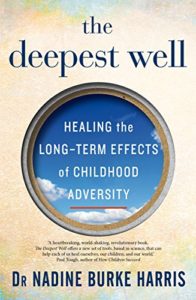
The Deepest Well
Bringing together results from a study by Kaiser Permanente and the CDC on how adversity in childhood affects the health of adults with her own experiences as a physician, Dr. Nadine Burke-Harris gives actionable advice on how to break the cycle of ill health stemming from childhood trauma.
Read more about the book at NPR
Hear her thoughts from Family Action Network
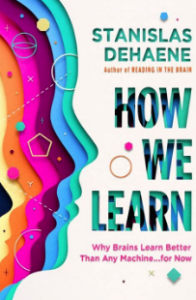
How We Learn
What is learning and how do we accomplish it? Stanislas Dehaene, a cognitive neuropsychologist and professor at the Collège de France, addresses these questions in How We Learn: Why Brains Learn Better Than Any Machine… for Now. He defines learning as the process of forming an internal model of the outside world and describes four critical elements of learning—attention, active engagement, error feedback, and consolidation. Human brains are more efficient learners than computers or other species because they are so skilled in reasoning about probabilities and extracting abstract principles from observations Our ability to learn, especially from one another, allows us to adapt to unpredictable circumstances and is responsible for our success as a species. This book will be of interest to individuals wishing to better understand learning, how humans do it well, and implications of brain development and functioning for learning.
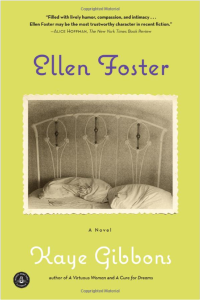
Ellen Foster
Winner of the American Academy of Arts and Letters’ Sue Kaufman Prize for First Fiction and of the Ernest Hemingway Foundation’s Citation for Fiction. An eleven-year-old heroine tells her unforgettable story with honesty, perceptivity, humor, and unselfconscious heroism. “The honesty of thought and eye and feeling and word!”–Eudora Welty; “A lovely, breathtaking, sometimes heart-wrenching first novel.”–Walker Percy. A LITERARY GUILD SELECTION.
Read the review in the New York Times
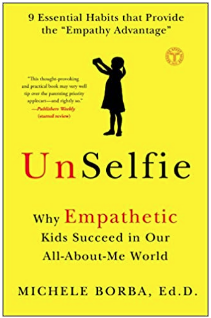
UnSelfie: Why Empathetic Kids Succeed in Our All-About-Me World
Teens today are forty percent less empathetic than they were thirty years ago. Why is a lack of empathy—which goes hand-in-hand with the self-absorption epidemic Dr. Michele Borba calls the Selfie Syndrome—so dangerous? First, it hurts kids’ academic performance and leads to bullying behaviors. Also, it correlates with more cheating and less resilience. And once children grow up, a lack of empathy hampers their ability to collaborate, innovate, and problem-solve—all must-have skills for the global economy.
In UnSelfie Dr. Borba pinpoints the forces causing the empathy crisis and shares a revolutionary, researched-based, nine-step plan for reversing it.
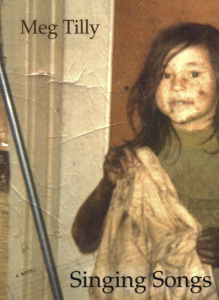
Singing Songs
Originally published in 1994 to critical acclaim, Singing Songs still resonates as a profound statement about the secrets families keep from the rest of the world, as Anna, the resilient young narrator, journeys through childhood trapped in a fragmented family caught in a cycle of abuse, denial, and neglect. This new edition includes a foreword by the author, reflecting on how Singing Songs came to be written.
Read the review in Publishers Weekly
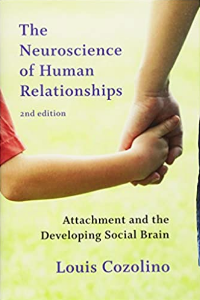
The Neuroscience of Human Relationships: Attachment and the Developing Social Brain
Since the publication of the first edition in 2006, the field of social neuroscience has grown at a mind-numbing pace. Technical advances now provide more windows into our inner neural universe and terms like attachment, empathy, compassion, and mindfulness have begun to appear in the scientific literature. Overall, there has been a deepening appreciation for the essential interdependence of brain and mind. More and more parents, teachers, and therapists are asking how brains develop, grow, connect, learn, and heal. The new edition of this book organizes this cutting-edge, abundant research and presents its compelling insights, reflecting a host of significant developments in social neuroscience.
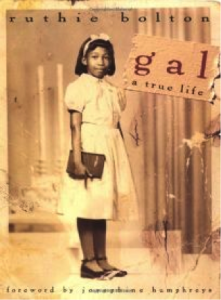
Gal: A True Life
Ruthie Mae Bolton was born January 6, 1961, in the Hungry Neck section of Charleston, South Carolina. At the time, her mother was thirteen; she has never known who her father was. Her mother was the wandering kind, so Ruthie Mae-nicknamed “Gal” by her stepgrandfather-was raised in her grandparents’ home. One day Grandmama died as a result of a severe beating by her husband-it occured to no one to call this to the attention of the authorities-and Gal was left in the brutal hands of her granddaddy, who beat her unmercifully as well. Ruthie Mae began to steal things in school and she developed a stutter; she drank and smoked dope. But she stuck resolutely with her education and graduated from high school, which was likely her salvation, for today Ruthie Mae is happily married, with children and a fine job. At last she is at peace-with herself. Here is an absolutely remarkable document, as touching as it is painful, as ageless as it is timely.
Review in Publishers Weekly
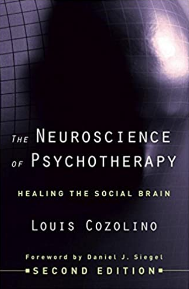
The Neuroscience of Psychotherapy: Healing the Social Brain
Recent theoretical advances in brain imaging have revealed that the brain is an organ continually built and re-built by one’s experience. We are now beginning to learn that many forms of psychotherapy, developed in the absence of any scientific understanding of the brain, are supported by neuroscientific findings. In fact, it could be argued that to be an effective psychotherapist these days it is essential to have some basic understanding of neuroscience. Louis Cozolino’s The Neuroscience of Psychotherapy, Second Edition is the perfect place to start.
In a beautifully written and accessible synthesis, Cozolino illustrates how the brain’s architecture is related to the problems, passions, and aspirations of human beings. As the book so elegantly argues, all forms of psychotherapy–from psychoanalysis to behavioral interventions–are successful to the extent to which they enhance change in relevant neural circuits.
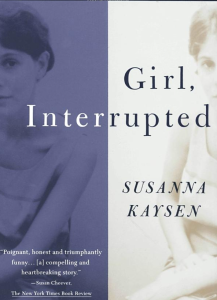
Girl, Interrupted
In 1967, after a session with a psychiatrist she’d never seen before, eighteen-year-old Susanna Kaysen was put in a taxi and sent to McLean Hospital. She spent most of the next two years in the ward for teenage girls in a psychiatric hospital as renowned for its famous clientele—Sylvia Plath, Robert Lowell, James Taylor, and Ray Charles—as for its progressive methods of treating those who could afford its sanctuary.
Kaysen’s memoir encompasses horror and razor-edged perception while providing vivid portraits of her fellow patients and their keepers. It is a brilliant evocation of a “parallel universe” set within the kaleidoscopically shifting landscape of the late sixties. Girl, Interrupted is a clear-sighted, unflinching document that gives lasting and specific dimension to our definitions of sane and insane, mental illness and recovery.
Review in the New York Times
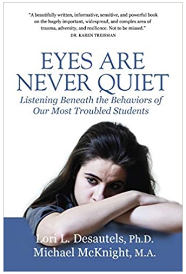
Eyes Are Never Quiet: Listening Beneath the Behaviors of Our Most Troubled Students
The eyes of troubled youth are communicating in all moments. Hurt people hurt people. Our children can become violent, detached, or shut down when early development is toxic, severely disrupted and is met with significant adverse childhood experiences. Children are our nation’s greatest natural resource and their emotional, mental and physiological well-being are at stake.What can we do? We begin with the awareness and research that adversity just doesn’t happen to a child — it attacks and hijacks a child’s brain, body and nervous system function reprograming how they react and respond to all life. For educators, counselors, social workers, mental health professionals and law enforcement–this book presents the neurobiology of adversity and trauma in youth and the resiliency of hope and mindfulness … and how to help.
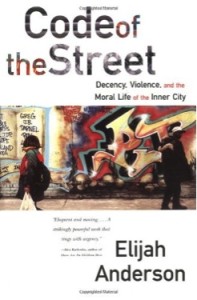
The Code of the Street
Inner-city black America is often stereotyped as a place of random violence, but in fact, violence in the inner city is regulated through an informal but well-known code of the street. This unwritten set of rules―based largely on an individual’s ability to command respect―is a powerful and pervasive form of etiquette, governing the way in which people learn to negotiate public spaces. Elijah Anderson’s incisive book delineates the code and examines it as a response to the lack of jobs that pay a living wage, to the stigma of race, to rampant drug use, to alienation and lack of hope.
Essay by the author in The Atlantic
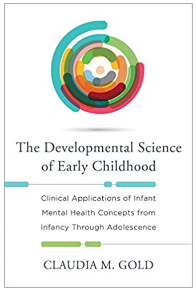
The Developmental Science of Early Childhood: Clinical Applications of Infant Mental Health Concepts From Infancy Through Adolescence
The field commonly known as “infant mental health” integrates current research from developmental psychology, genetics, and neuroscience to form a model of prevention, intervention, and treatment well beyond infancy. This book presents the core concepts of this vibrant field and applies them to common childhood problems, from attention deficits to anxiety and sleep disorders.
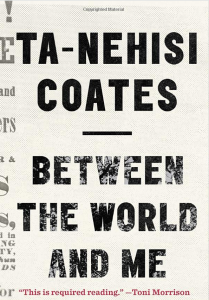
Between the World and Me
In a profound work that pivots from the biggest questions about American history and ideals to the most intimate concerns of a father for his son, Ta-Nehisi Coates offers a powerful new framework for understanding our nation’s history and current crisis. Americans have built an empire on the idea of “race,” a falsehood that damages us all but falls most heavily on the bodies of black women and men—bodies exploited through slavery and segregation, and, today, threatened, locked up, and murdered out of all proportion. What is it like to inhabit a black body and find a way to live within it? And how can we all honestly reckon with this fraught history and free ourselves from its burden? Between the World and Me is Ta-Nehisi Coates’s attempt to answer these questions in a letter to his adolescent son.
Review in the New York Times
Interview with the author

The Short and Tragic Life of Robert Peace
When author Jeff Hobbs arrived at Yale University, he became fast friends with the man who would be his college roommate for four years, Robert Peace. Robert’s life was rough from the beginning in the crime-ridden streets of Newark in the 1980s, with his father in jail and his mother earning less than $15,000 a year. But Robert was a brilliant student, and it was supposed to get easier when he was accepted to Yale, where he studied molecular biochemistry and biophysics. But it didn’t get easier. Robert carried with him the difficult dual nature of his existence, trying to fit in at Yale, and at home on breaks.
Review in the New York Times
Interview with the author
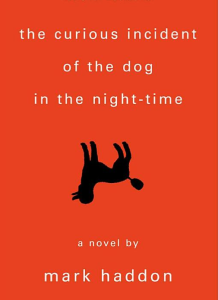
The Curious Incident of the Dog in the Night-Time
Christopher John Francis Boone knows all the countries of the world and their capitals and every prime number up to 7,057. He relates well to animals but has no understanding of human emotions. He cannot stand to be touched. And he detests the color yellow.
This improbable story of Christopher’s quest to investigate the suspicious death of a neighborhood dog makes for one of the most captivating, unusual, and widely heralded novels in recent years.
Review in the New York Times
Review in The Guardian
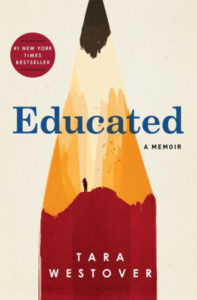
Educated
Tara Westover’s memoir details her quest for knowledge as a way out of the narrow world her survivalist parents raised her to believe in. It looks at education as a way to view one’s life with new perspective.
Review in the New York Times
Hear the author’s thoughts with PBS
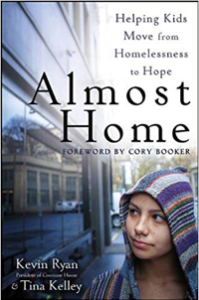
Almost Home
Inviting us to get to know homeless teens as more than an accumulation of statistics and societal issues, this book gives a human face to a huge but largely invisible problem and offers practical insights into how to prevent homelessness and help homeless youth move to a hopeful future.
Review by The Social Worker
Hear the author discuss the book on the Free Library Podcast
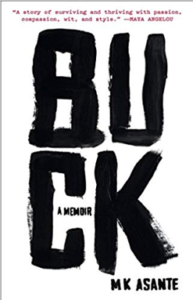
Buck
A coming-of-age story about navigating the wilds of urban America and the shrapnel of a self-destructing family, Buck shares the story of a generation through one original and riveting voice. MK Asante was born in Zimbabwe to American parents: his mother a dancer, his father a revered professor. But as a teenager, MK was alone on the streets of North Philadelphia, swept up in a world of drugs, sex, and violence. MK’s memoir is an unforgettable tale of how one precocious, confused kid educated himself through gangs, rap, mystic cults, ghetto philosophy, and, eventually, books. It is an inspiring tribute to the power of literature to heal and redeem us.
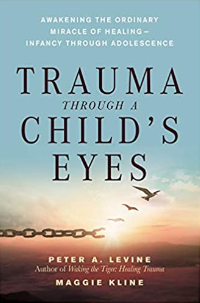
Trauma Through a Child's Eyes: Awakening the Ordinary Miracle of Healing
Trauma can result not only from catastrophic events such as abuse, violence, or loss of loved ones, but from natural disasters and everyday incidents like auto accidents, medical procedures, divorce, or even falling off a bicycle. At the core of this book is the understanding of how trauma is imprinted on the body, brain, and spirit—often resulting in anxiety, nightmares, depression, physical illnesses, addictions, hyperactivity, and aggression.
Rich with case studies and hands-on activities, Trauma Through a Child’s Eyes gives insight into children’s innate ability to rebound with the appropriate support, and provides their caregivers with tools to overcome and prevent trauma.
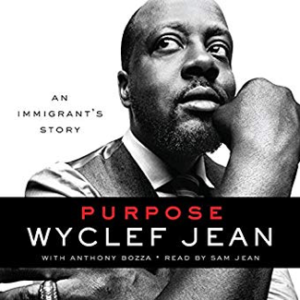
Purpose
In Purpose, Wyclef Jean recounts his path to fame from his impoverished childhood in “Baby Doc” Duvalier’s Haiti and the mean streets of Brooklyn and Newark to the bright lights of the world stage.
Wyclef was born and raised in the slums of Haiti, then moved with his family to New York when he was nine and lived in Brooklyn’s notorious Marlboro projects. Later, his father, Gesner Jean, moved the family to Newark, but life in New Jersey was no easier for Wyclef, who found it hard to shake his refugee status. Forced to act as a literal and cultural translator for his parents while still trying to master English himself, Wyclef soon learned that fitting in would be a constant struggle.
Review in the New York Times
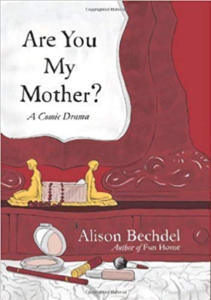
Are You My Mother?
Listen to Alison Bechdel talk about the effects of her mother’s lack of touch starting at the age of seven
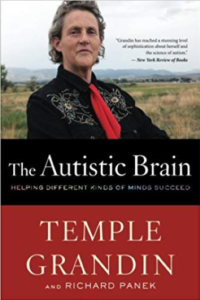
The Autistic Brain
Temple Grandin, who was diagnosed with autism as a child, speaks about the condition from both recent scientific discoveries and personal experience.
Review in the New York Times
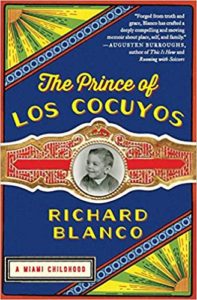
The Prince of Los Cocuyos: A Miami Childhood
Richard Blanco made history four times at Barack Obama’s second presidential inauguration: He was the first immigrant, the first Latino, the youngest person, and the first openly gay person to be the U.S. inaugural poet. His new memoir explores his upbringing as the child of Cuban exiles, and his artistic, sexual, and cultural identities as an American.
A poignant, hilarious, and inspiring memoir from the first Latino and openly gay inaugural poet, which explores his coming-of-age as the child of Cuban immigrants and his attempts to understand his place in America while grappling with his burgeoning artistic and sexual identities.
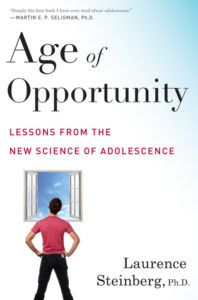
Age of Opportunity: Lessons from the New Science of Adolescence
Distinguished University Professor of Psychology at Temple University, Laurence Steinberg is one of the world’s leading experts on adolescence. In Age of Opportunity, Steinberg mines innovative research to explain how the plasticity of the adolescent brain, rivaling that of years 0 through 3, suggests new strategies for instilling self-control.
Adolescence now lasts longer than ever before. And as world-renowned expert on adolescent psychology Dr. Laurence Steinberg argues, this makes these years the key period in determining individuals’ life outcomes, demanding that we change the way we parent, educate, and understand young people.
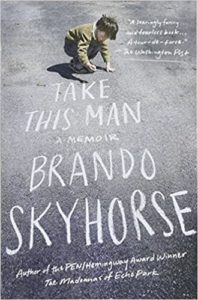
Take This Man: A Memoir
Determined to give her son everything but the truth of his father or Mexican ancestry, Brando Skyhorse’s mother took the last name of a stranger in prison for armed robbery and created a new identity for her young child as the Native American son of an incarcerated political activist. Acclaimed for his “indelible storytelling” (O, The Oprah Magazine), Skyhorse recounts his turbulent childhood growing up with five stepfathers in his memoir Take This Man.
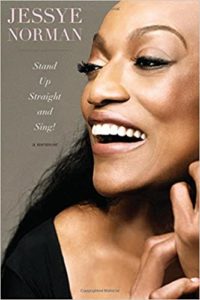
Stand Up Straight and Sing!
One of the world’s most accomplished opera singers, Jessye Norman faced the challenges of growing up under the struggles of racism in the Deep South. Following a long tradition of American sopranos who have refused to be constrained by societal limits, Norman is “one of those once-in-a-generation singers who is not simply following in the footsteps of others, but is staking out her own niche in the history of singing” (New York Times). She is the recipient of a Kennedy Center Honor, five Grammys, and dozens of international prizes. Stand Up Straight and Sing is an account of her inspiring life.
Films
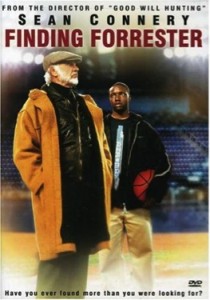
Finding Forrester
Set in Manhattan and the South Bronx, William Forrester, a Pulitzer Prize-winning novelist who has not been heard from for four decades, accidentally discovers that Jamal, a brash 16-year-old African American who plays basketball on the court below his window, keeps a secret journal that shows a real gift for writing. Forrester takes Jamal on as a protégé, and the friendship challenges and changes the two of them forever.
Review by Roger Ebert
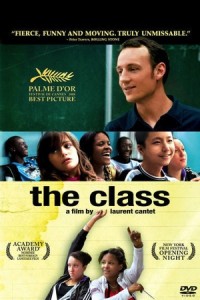
The Class
The Class (2008 Academy Award® Nominee, Best Foreign Language Film) follows the year in the life of a French schoolteacher working at a high school in a tough neighborhood of Paris. Cultures and attitudes often clash in the classroom. As amusing and inspiring as the teenage students can be, their difficult behavior can still jeopardize any teacher’s enthusiasm for the low-paying job. Insisting on an atmosphere of respect and diligence that’s neither stuffy nor severe, his frankness often takes the students by surprise. But his classroom ethics are put to the test when his students begin to challenge his methods.
Review by Roger Ebert
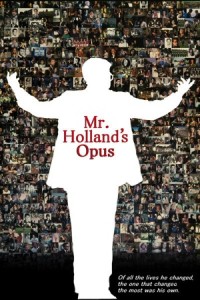
Mr. Holland's Opus
Mr Holland’s Opus is the triumphant story about Glenn Holland, a musician who dreams of composing music on a full-time basis. However, supporting an expectant wife, he reluctantly accepts a job teaching music appreciation for a source of steady income. Rather than being disappointed with his newfound career, he discovers a passion for teaching music and unintentionally inspires the dreams of the students of John F. Kennedy High School.
Review by Roger Ebert
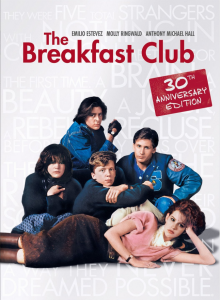
The Breakfast Club
From writer/director John Hughes (Sixteen Candles, Weird Science), The Breakfast Club is an iconic portrait of 1980s American high school life. When Saturday detention started, they were simply the Jock, the Princess, the Brain, the Criminal and the Basket Case, but by that afternoon they had become closer than any of them could have imagined. Featuring an all-star ’80s cast including Emilio Estevez, Anthony Michael Hall, Judd Nelson, Molly Ringwald, and Ally Sheedy, this warm-hearted coming-of-age comedy helped define an entire generation!
Review by Roger Ebert
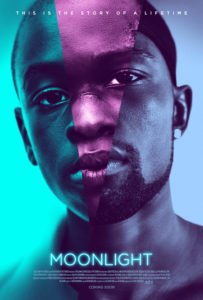
Moonlight
Adapted from Tarell Alvin McCraney’s unproduced play “In Moonlight Black Boys Look Blue”, the film tells the coming-of -age story of an African American man in three breath-taking parts.
Review in the New York Times
Review in The Guardian
Review by Roger Ebert